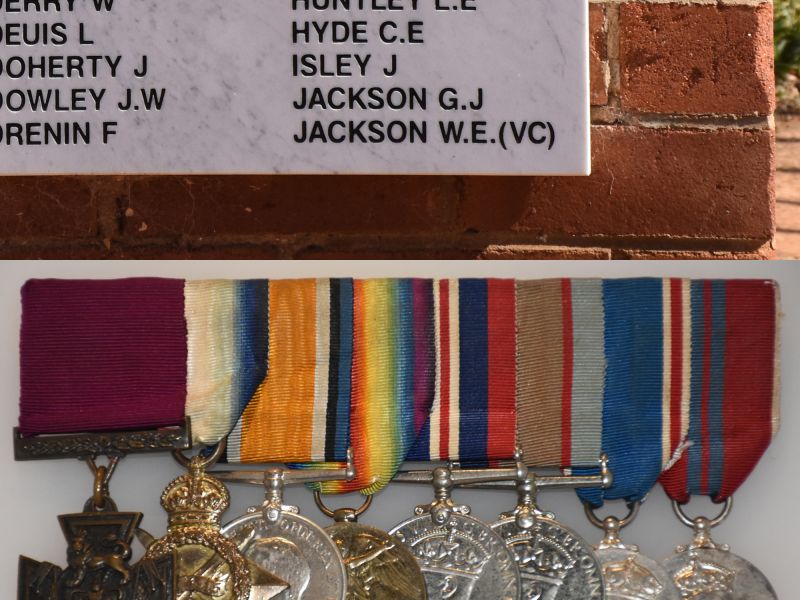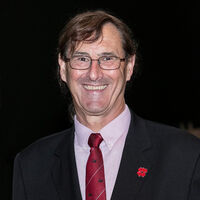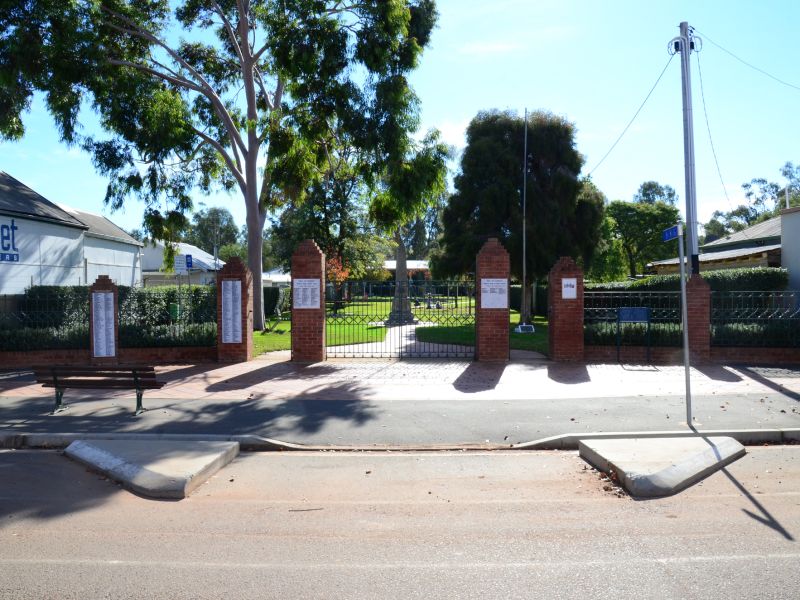The Youngest Recipient
Every name, on every memorial, has a story behind it. Some are stories of ‘ordinary’ people who did extraordinary things. The marble panel on the left gate pillar marking the entrance to the Hillston Memorial Park, bears the name Jackson W.E. with, in brackets, the letters VC. Although one initial is incorrect, there is no doubt that VC stands for Victoria Cross, the nation’s highest honour for valour in the field. William Jackson's story is indeed extraordinary.
John William Alexander Jackson was born on 13 September 1897 at Gunbar, north of Hay, NSW. In early 1915, Jackson wanted to enlist in the Army but he was under-age. He gained his father’s approval to raise his age by a year and so enlisted in February 1915, aged 17 years and five months.
After training in Egypt, he was sent to Gallipoli in August 1915, where he saw action before being medically evacuated. He returned to duty in February 1916 and in March, embarked with his Battalion for France. On the night of 25 June, Jackson was in a raiding party that assaulted the forward German trenches. As they withdrew, they came under heavy fire. Jackson brought a prisoner back and returned to bring in wounded men. As he was carrying in another man, his right arm was shattered by a bursting shell. He returned for help, then disregarding his own condition, went out again to help bring back more wounded. For this act of courage, he was immediately awarded the Distinguished Conduct Medal (DCM). In July 1916 this was upgraded to the Victoria Cross and the DCM cancelled. Jackson was invested with his VC at Buckingham Palace in November 1916. In May 1917, Jackson was invalided to Australia.
After the war, Jackson had several jobs, before moving to Sydney in 1929. Early in the Second World War he enlisted in the Army for two brief periods. It is here that his story takes an unusual turn. Whilst in uniform Jackson wore the ribbons of both the VC and the DCM. When challenged by military authorities, Jackson produced a letter advising that the award of the DCM was gazetted two weeks after his VC. Jackson stated that he knew nothing about the cancellation of the DCM and would continue to wear both ribbons.
His military record shows that the DCM was cancelled but the medal was never returned. As Jackson resigned from the Army, authorities did not pursue its return. The VC was awarded for the exact same actions for which he’d initially been awarded the DCM, so only the highest award applied.
Following his discharge, Jackson again worked as a skin buyer but in 1953 became a Commissionaire and Inquiry attendant at the Melbourne Town Hall. He died on 5 August 1959 in Heidleburg, Victoria, of heart disease. His ashes were placed in Boronia Gardens, Springvale, Victoria.
To date Jackson remains the youngest Australian to be awarded a Victoria Cross and the first won by an Australian on the Western Front.
- Australian War Memorial https://www.awm.gov.au/collection/P11026156

 Henry C Moulds
Henry C Moulds